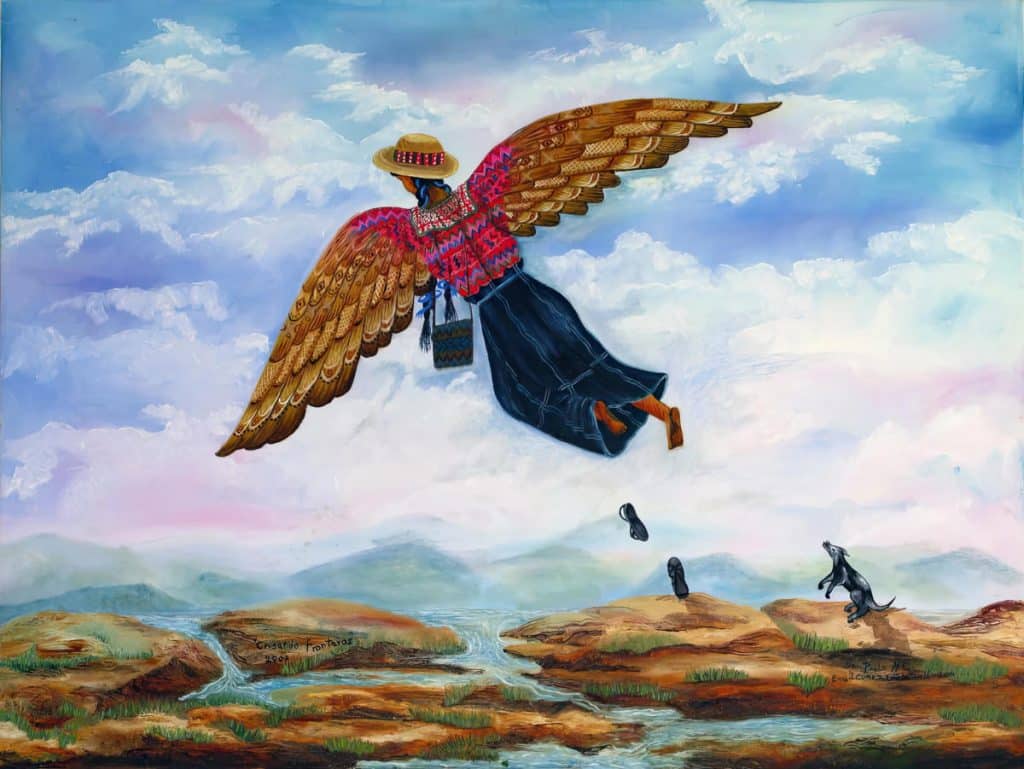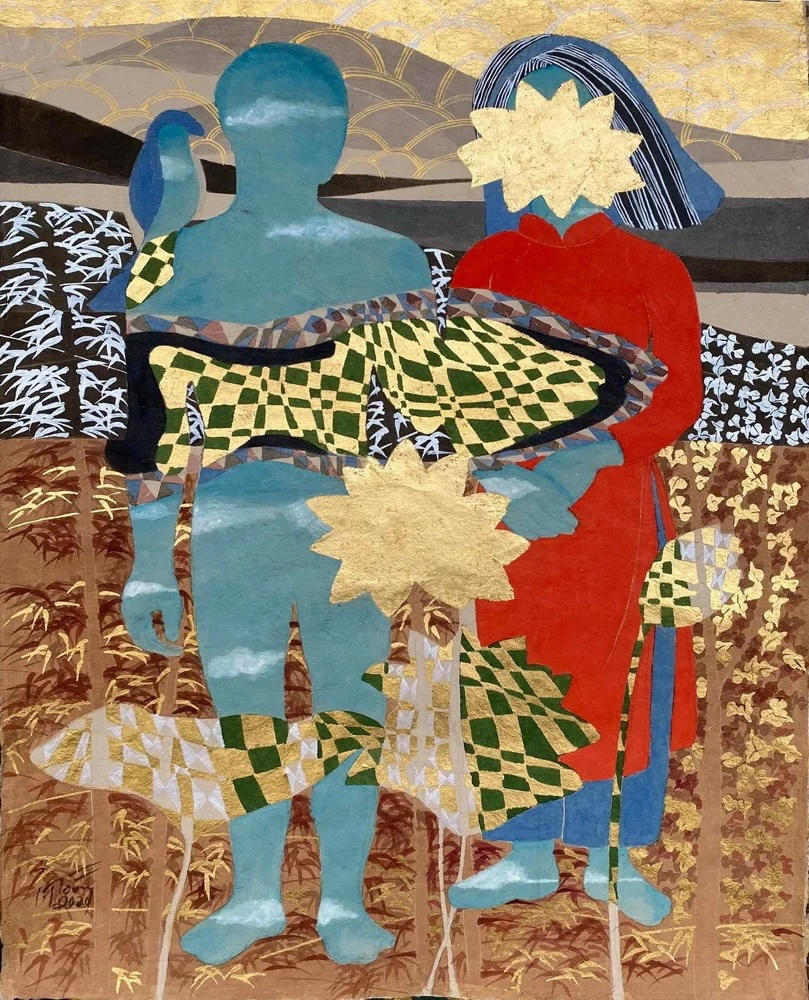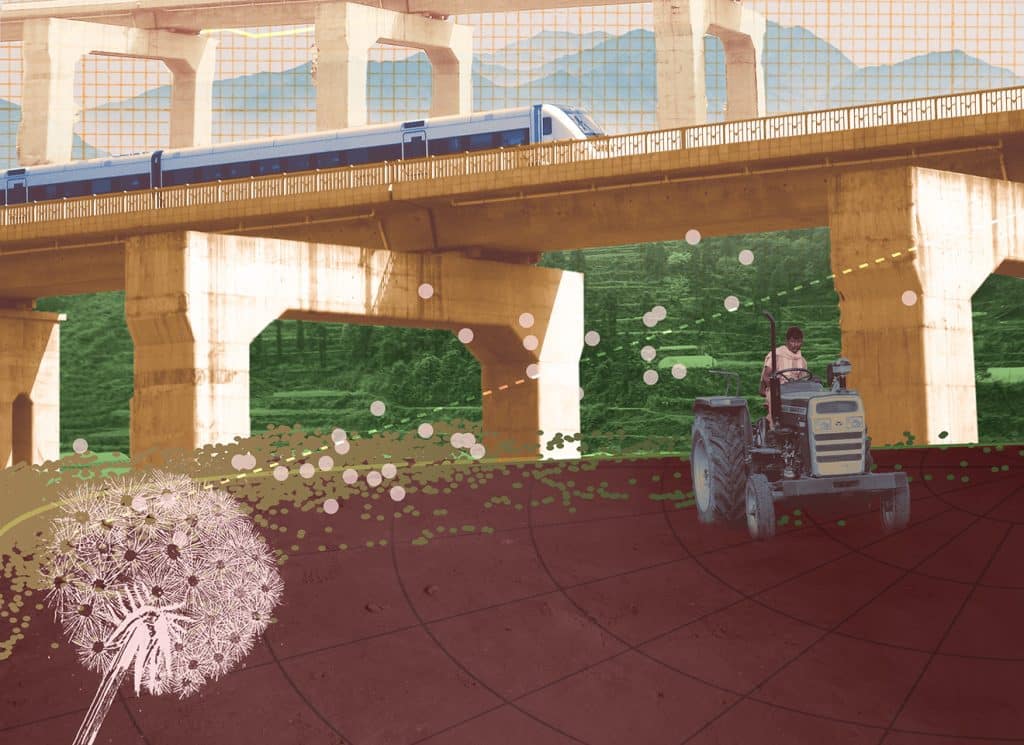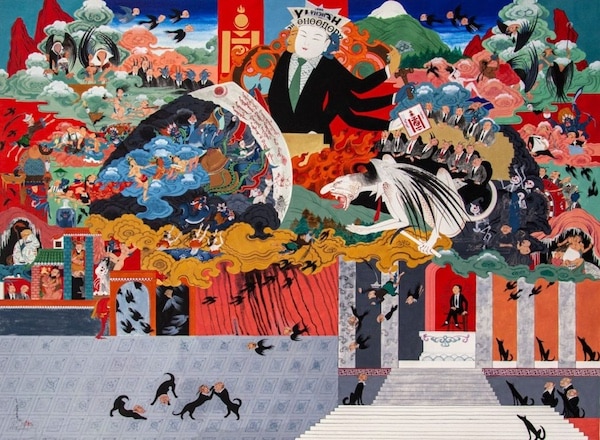Dear friends,
Greetings from the desk of Tricontinental: Institute for Social Research.
For decades now, there has been a clear understanding that the models of development proposed by the International Monetary Fund (IMF) and the Washington Consensus—debt, austerity, structural adjustment—simply have not worked. The long history of adversity experienced by the former colonial countries remains intact. A glance at the numbers from the Maddison Project Database 2023 shows that global Gross Domestic Product (GDP) in Purchasing Power Parity (PPP) terms has risen by 689.9% between 1980 and 2022 (from $18.8 trillion to $148.5 trillion). However, during this same period, global poverty rates did not decrease at a commensurate pace, which indicates that the benefits of global economic growth have not been rationally distributed. The only exception to this trend is China. The most recent report from the United Nations Conference on Trade and Development (UNCTAD), titled A World of Debt, shows us that global public debt is at a ‘record high’ of $97 trillion (2023) and that public debt in developing countries ‘has grown twice as fast as in developed countries’ since 2010. Not surprisingly, for decades, Global South countries have been told by institutions like the World Bank and the IMF that the only way to climb out of debt is to borrow—i.e., take on more debt. In 1998, the Wall Street Journal wrote bluntly that the IMF ‘has not been fighting financial fires, but dousing them with gasoline’.
 Paula Nicho Cúmez (Guatemala), Mas allá del universo (Beyond the Universe), 2005.
Paula Nicho Cúmez (Guatemala), Mas allá del universo (Beyond the Universe), 2005.
In 1980, under the leadership of President Julius Nyerere, the government of Tanzania organised the South-North Conference on the International Monetary System and the New International Order. That conference produced the Arusha Initiative, which called for the creation of a new international monetary authority that would be under democratic management and control, with an international currency unit that would serve as both the international means of exchange and a primary reserve asset. ‘The world cannot continue to afford a situation’, the Arusha Initiative argued, ‘where one country imposes its own currency to play this role and uncontrolled international money creation and transnational speculative movements are allowed to occur’. This conference was one of many in that period, when the Third World Debt crisis was on the horizon, and it seemed clear that the IMF’s policy prescriptions would only enable suffering—not development. ‘When did the IMF become an International Ministry of Finance?’, Nyerere asked in his remarks at the conference. ‘When did nations agree to surrender to it their power of decision making?… The problems of my country and other Third World countries are grave enough without the political interference of IMF officials. If they cannot help, at the very least they should stop meddling’.

Dinh Thi Tham Poong (Vietnam), Side by Side, 2020.
Yet, despite the opposition of Third World leaders like Nyerere, IMF ‘meddling’ continued. Nyerere ended his remarks with his hands in the air: ‘I believe they will bear the further sacrifices, and further burdens, which present conditions impose upon us just as long as they are assured that we are doing our best to share the burdens equitably and continuing to pursue our own policies’. But what policies were ‘our own’? This was neither sketched out at the conference nor clearly articulated in the five remaining years of Nyerere’s tenure as president. In 1986, the year after Nyerere left office, Tanzania’s new government went to the IMF and adopted the Economic Recovery Programme, which slashed public spending and liberalised foreign exchange controls. With no alternative in sight, Tanzania had to surrender to the IMF and leave behind the cooperative development policies of Ujamaa that Nyerere had implemented.
Every few years, countries in the Global South go through the same cycle. After surrendering to the IMF and its debt-austerity regime, a deep crisis inevitably takes hold and leads to political turmoil. New forces then emerge that promise a way out of the crisis, new governments take power, and, after several experiments, these countries again return to the IMF and the cycle continues once more. Despite the creation of ‘our policies’, as Nyerere noted, the balance of forces has been so adverse that no such independent agenda has been possible. Any appetite for a new international economic order has been suppressed, and there has been a lack of sufficient concessionary financing available for policies outside the recipe of the IMF.

In his last speech as president of the United States, Joe Biden said, ‘This is a fierce competition underway—the future of the global economy, technology, human values, and so much else’. This ‘worldwide competition’, he said, is between the United States and its allies on one side and ‘Iran, Russia, China, North Korea’ on the other, and the United States is ‘winning’ it. There is something juvenile about this speech. No other country has talked about a ‘competition’. When an Agence France—Presse reporter asked the Chinese Foreign Ministry spokesperson Guo Jiakun about these remarks, he answered calmly, ‘During the past four years, China-US relations have gone through ups and downs but have remained stable on the whole’. There was no belligerence. The key words in the rest of the speech were ‘consultation’, ‘dialogue’, and ‘cooperation’. But Biden has a point. The emergence of China, and other Asian countries, as a source of demand for goods as well as finance for industrialisation in the Global South has tilted the balance of forces for developing countries. Now, they no longer have to rely on the IMF. The centre of gravity of world trade and technology is shifting.
It is precisely because this shift is disadvantageous to the United States—and the monopoly capital it represents—that it has begun to see the situation as a ‘competition’, whereas the countries that have emerged as major economic powers see this as their right to development. We, at Tricontinental: Institute for Social Research, do not see the current world situation as a ‘competition’ in the way that Biden describes it, but as an opportunity. As new sources of finance and investment emerge, the countries of the Global South will have another opportunity to ‘pursue our own policies’, as Nyerere put it a half century ago. What will those new policies be?
In our latest dossier, Towards a New Development Theory for the Global South (produced in partnership with Global South Insights), we argue that there is an ultra-high correlation between the share of net fixed capital formation in GDP and economic growth. Put simply, what is fundamentally needed to grow an economy is investment in new fixed assets (be they buildings, infrastructure, or industrial machinery). Moreover, we show a statistically significant correlation between GDP per capita and life expectancy. These findings make it clear that the entry of foreign direct investment and speculative financial flows alone will not improve social indicators. The quality of financing is key to the development agenda, and at the centre of this is the process of industrialisation. No country has developed without a modern machine industry, and—as far as we can tell in our time—it is not possible for any country to develop without building up its industrial capacity. We must invest in order to build, build in order to grow, and grow in order to improve people’s lives.

Slimen Elkamel (Tunisia), Cudding, 2022.
Our institute will spend the next few years exploring the different aspects of a new development theory. We believe that this opportunity, which Biden calls a ‘competition’, is too important to squander. There is poetry in the last lines of the dossier:
The African revolutionary Amílcar Cabral taught us that the goal of national liberation is ‘the freeing of the process of development of the national productive forces’. Therefore, the formulation of a new development theory for the Global South is also a return to the source of our struggles for freedom from imperialism and neocolonialism. With it, we will chart the path for the Promethean aspirations of the darker nations.
Warmly,
Vijay

